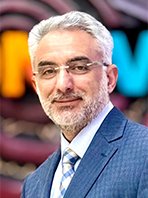"Tela” sözlükte "izledi, takip etti, peşinden gitti” demektir.
"Onu izlediği zaman aya” (Şems, 91/2) ayetinde bu anlam açıktır.
Bu açıdan Kur'an tilaveti; muhteva ve gereklerine riayet ederek; yani öncelikle anlayıp, sonra yaşayarak O'nu izlemek, O'nu takip etmek, O'nun peşinden gitmektir.
Ay güneşin uydusudur. Güneşi o kadar ciddi takip eder ki vakitler, Ay'ın hareketleri üzerinden belirlenmiştir.
İnanan insanda Kur'an'ın uydusu olmalı ve Ay'ın Güneş'i takip ettiği gibi, Kur'an'a bağlı bir hayat yaşamalıdır.
Hz. Peygamber (s.a.v.) ve ashabı Kur'an'ı hakkıyla tilavet etmişler yani onunla amel etmişlerdir. Kur'an'ı hakkıyla tilavet edenler, Kur'an'ın ondan istediklerini yerine getirenlerdir. İçindekilere tabii olmadığında, o kimse Kur'an'ı tilavet etmemiş olur. Yani tilavet aslen okuduklarıyla amel etmektir. (b.k.z. Maturidi, Te'vilatü'l-Kur'ani 12/37)
Hidayet kaynağı Kur'an'nın tabii ki zikir tarafı da vardır. Manası bilinmeden okunduğunda da sevap kazanılır.
Ama O, daha çok hidayet ve hakikatin en birinci kaynağı olması itibariyle her daim okunması gereken başvuru kitabımız olmalıdır.
"Sana vahyolunan kitabı güzel güzel oku ve namazı kıl, hakiki namaz edepsizlikten ve uygunsuzluktan nehyeder ve her halde Allah'ın zikri en büyük iştir ve Allah her ne işlerseniz bilir.” Ankebut, 29/45.
Burada Kur'an namaz birlikteliğine dikkat çekilmiştir. Zira Kur'an'ı en çok ve sürekli okuduğumuz ibadetimiz namazdır.
İşte o namaz bizi Allah'ın kurallarına sıkı sıkıya takva ipiyle bağlanmalıdır.
Aksi takdirde şu ayetin ikazına muhatap oluruz:
"Vay o namaz kılanların haline ki: Onlar namazlarını ciddiye almazlar. Onlar gösteriş içindedirler.” Maun, 107/4-6.
Peygamberimiz (s.a.v.) Kur'an tilavetindeki bütünlüğü şu hadisiyle ifade etmiştir:
"İnsanlar helâk oldu, ancak alimler kurtuldu. Alimler de helâk oldu ancak, ilmiyle amel edenler kurtuldu. İlmiyle amel edenler de helâk oldu, ancak ihlâs sahibi olanlar kurtuldu. İhlâs sahibi olanlar da büyük bir tehlike içindedirler."
İlim-İman-Amel-İhlas-İhsan=Ahlak
"Kur'an'ın Hâkimiyeti Mutlakası” başlığında yazdığı makalede Said Nursi, insanları amale sevk eden kudsiyetin kaynağı olarak ifade ettiği Kur'an'ın daha çok anlaşılması, yaşanması halinde ancak İslam kardeşliğinin tesisinin mümkün olduğu belirtmiştir:
"Eğer cemaat-i İslâmiyenin hâcât-ı zaruriye-i diniyesi bizzat Kur'ân'a müteveccih olsa idi, o Kitab-ı Mübîn, milyonlarca kitaplara taksim olunan rağbetten daha şedit bir rağbete, ihtiyaç neticesi olan bir teveccühe mazhar olur ve bu sûretle nüfus üzerinde bütün mânâsıyla hâkim ve nâfiz olurdu. Yalnız tilâvetiyle taberrük olunan bir mübarek derecesinde kalmazdı.”
Aliya İzzetbegoviç'in dediği gibi: "Kur'an edebiyat değil, hayattır. Dolayısıyla O'na bir düşünce tarzı olarak değil, bir yaşam tarzı olarak bakılmalalıdır.”
Hablullah=Kopmaz İp'e sarılıp dünya ahiret saadeti istiyorsak daha çok Kur'an okuyacağız, daha derinlemesine anlamaya gayret edeceğiz, daha ihlaslı yaşayacağız anladıklarımızı…
Ve yaşayan Kur'an olan Allah Resulü'nün de rehberi Kur'an bizi de yaşayan, ahlak timsali örnek bir Hz. İnsan haline getirecek inşallah.
What is the Qur'an Recitation, What is it not?
"Tela” in the dictionary means "followed, followed, followed”.
This meaning is clear in the verse "When he follows it to the moon" (Shams, 91/2).
In this respect, the recitation of the Qur'an; by complying with its content and requirements; that is, to follow Him by first understanding and then living, to follow Him, to follow Him.
The moon is the satellite of the sun. It follows the sun so seriously that the times are determined by the movements of the moon.
A believer should be a satellite of the Qur'an and should live a life in accordance with the Qur'an, just as the moon follows the sun.
Hz. The Prophet (pbuh) and his companions recited the Qur'an properly, that is, they acted upon it. Those who recite the Qur'an properly are those who do what the Qur'an asks of it. When it does not follow its contents, that person does not recite the Qur'an. In other words, recitation is actually to act on what one reads. (b.k.z. Maturidi, Te'vilatu'l-Kur'ani 12/37)
Of course, the Qur'an, the source of guidance, also has a dhikr side. When it is recited without knowing its meaning, thawab is earned.
But it should be our reference book, which should always be read, as it is the primary source of guidance and truth.
"Read the book that has been revealed to you well and perform the prayer, the true prayer forbids indecency and indecency, and the remembrance of Allah is the greatest thing, and Allah knows what you do.” Ankebut, 29/45.
Here, attention is drawn to the unity of Qur'anic prayer. Because our worship that we read the Qur'an the most and constantly is prayer.
That prayer should bind us tightly to the rules of Allah with the rope of taqwa.
Otherwise, we will be warned by the following verse:
"Woe to those who pray: they do not take their prayers seriously. They are showing off.” Mahogany, 107/4-6.
Our Prophet (pbuh) expressed the integrity of the Qur'anic recitation with the following hadith:
"People were destroyed, but scholars were saved. Scholars were also destroyed, but those who acted with their knowledge were saved. Those who acted with their knowledge were also destroyed, but those who were sincere survived. Those who are sincere are also in great danger."
Knowledge-Faith-Deeds-Ihlas-Ihsan=Morals
In his article titled "The Domination of the Qur'an", Said Nursi stated that the establishment of Islamic brotherhood is only possible if the Qur'an, which he refers to as the source of the holiness that drives people to action, is better understood and lived:
"If the religious pilgrimage of the Islamic community were to focus on the Qur'an itself, that Book of Mubin would receive a more severe demand than the demand for millions of books, a favor out of necessity, and thus the population. He would be sovereign and nafiz over it in all its senses. He would not have remained at the level of a blessed one who was blessed only with his recitation.”
As Aliya İzzetbegovic said: "The Qur'an is not literature, it is life. Therefore, it should not be regarded as a way of thinking, but as a way of life."
Hablullah = If we want to hug the unbroken rope and want the happiness of the world and the hereafter, we will read the Qur'an more, we will try to understand it more deeply, we will live more sincerely what we understand...
And the living Qur'an, the guide of the Messenger of Allah and the Qur'an, is a living example of Hz. I hope it will make it human.





















